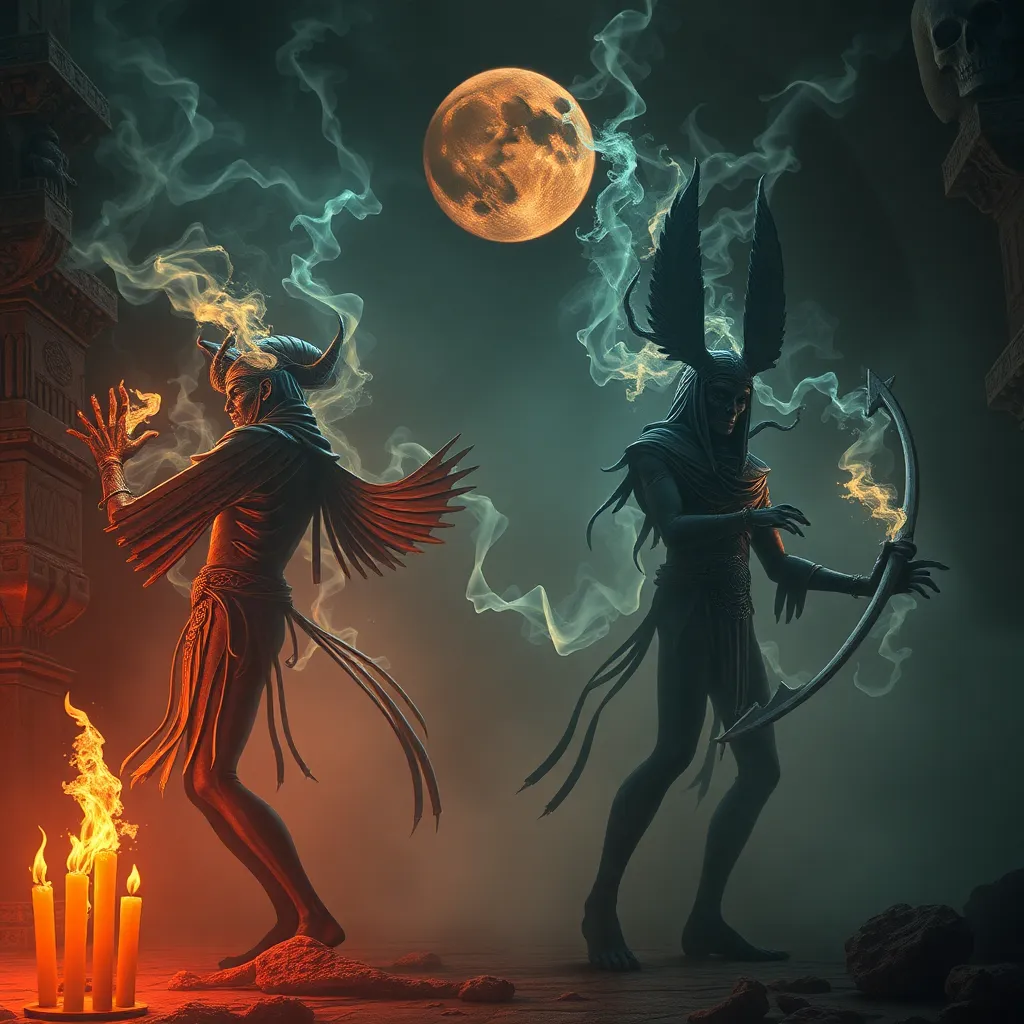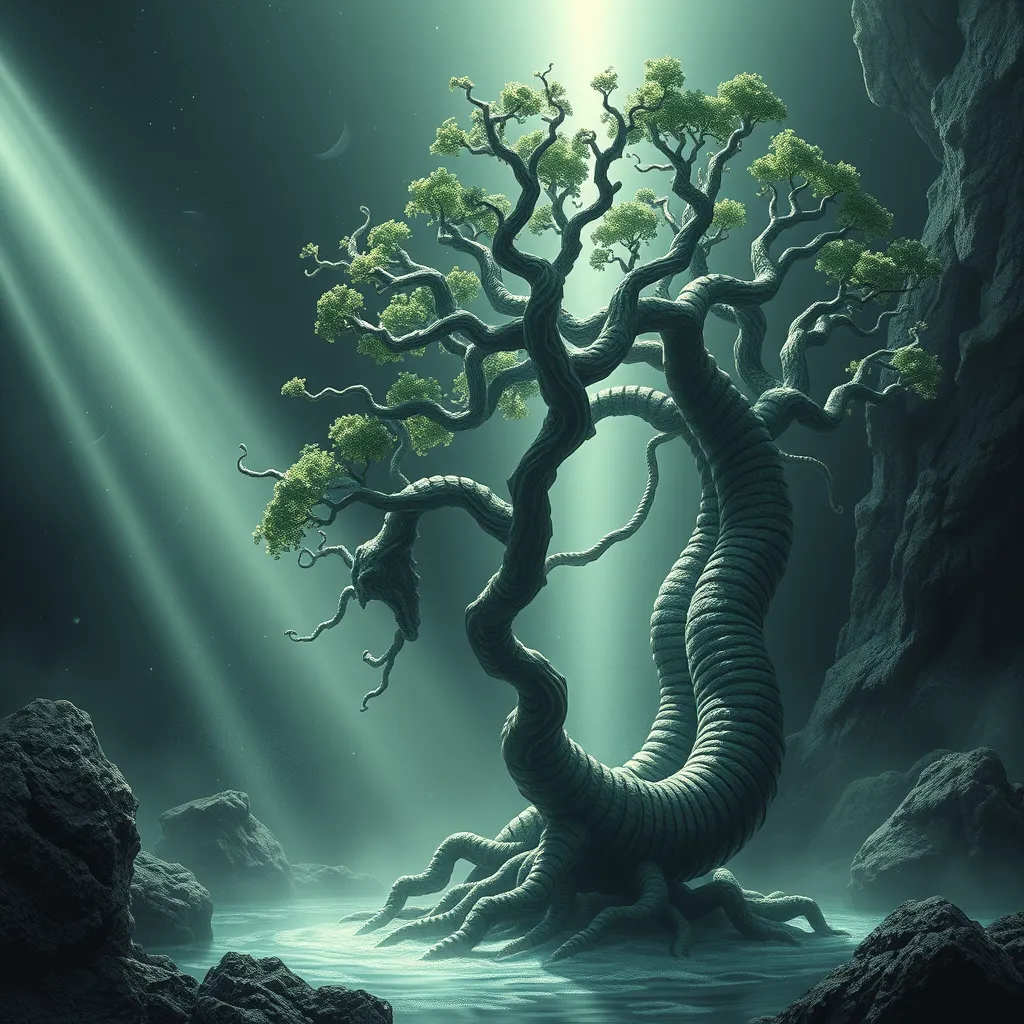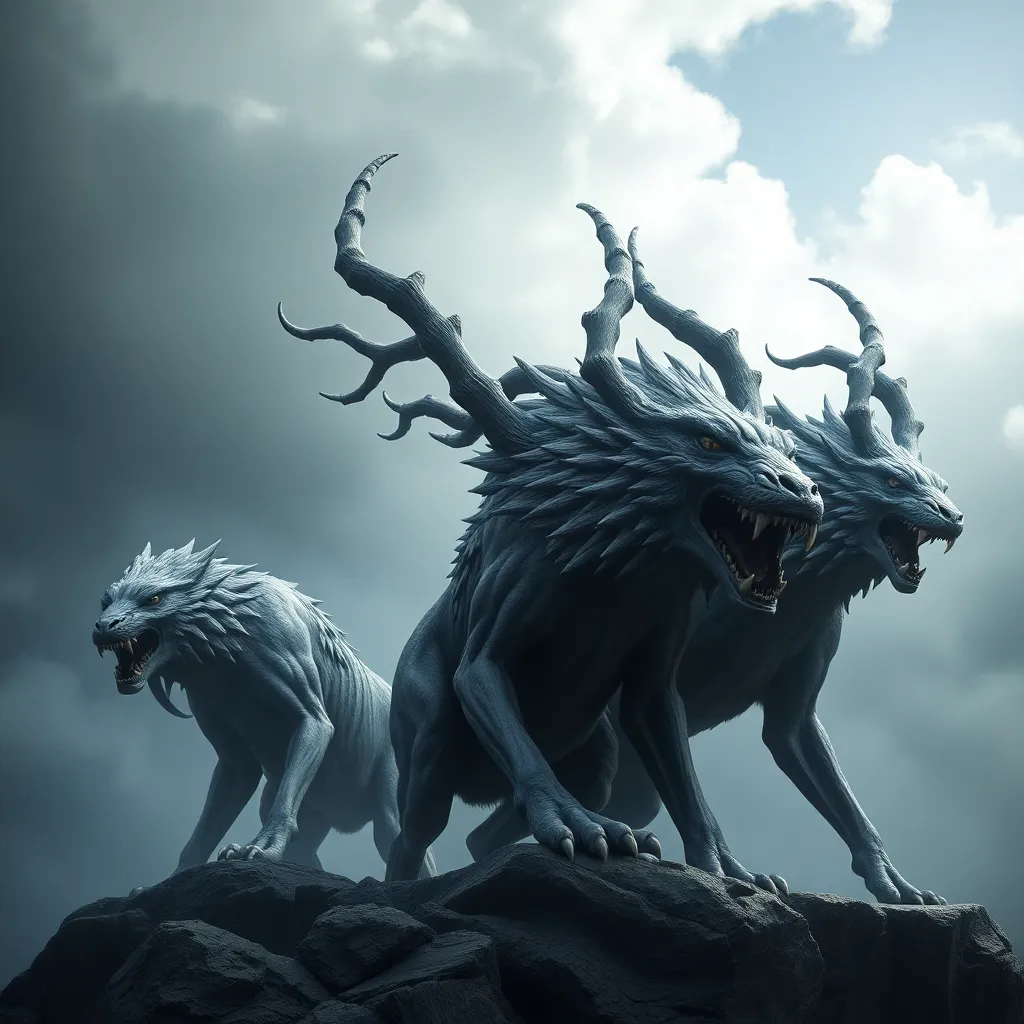The Spirits of the Dead: The Vengeful Spirits of the Egyptian Underworld
I. Introduction
In the rich tapestry of Egyptian mythology, vengeful spirits play a pivotal role, embodying the ancient Egyptians’ beliefs in justice, morality, and the afterlife. These spirits, often seen as manifestations of the deceased who have not found peace, serve as a reminder of the consequences of one’s actions in life. The underworld, or Duat, was a significant aspect of ancient Egyptian beliefs, where the souls of the dead faced judgment and sought to navigate the complexities of the afterlife.
This article delves into the notable vengeful spirits of the Egyptian underworld, exploring their roles, the significance of their actions, and the overarching themes of justice and retribution in ancient Egyptian culture.
II. The Egyptian Underworld: A Realm of Judgment and Justice
The Duat, or the Egyptian underworld, is a complex and multifaceted realm that serves as the final destination for souls after death. It is depicted in ancient texts and tomb paintings as a dark and perilous place full of challenges, where the deceased must navigate through various obstacles and trials.
One of the central themes of the Duat is the weighing of the heart ceremony, a crucial judgment process overseen by the god Osiris. In this ceremony, the heart of the deceased is weighed against the feather of Ma’at, the embodiment of truth and justice. If the heart is lighter than the feather, the soul is deemed worthy and granted passage to the afterlife; if heavier, it faces annihilation by the devourer of souls, Ammit.
Osiris, as the god of the afterlife, plays a vital role in this process, representing resurrection and the hope of eternal life. His judgment ensures that only those who have lived justly can enter the blissful fields of Aaru.
III. The Concept of Vengeance in Egyptian Beliefs
In ancient Egyptian culture, justice and retribution were deeply intertwined with the moral fabric of society. The Egyptians believed that one’s actions in life have direct consequences in the afterlife, leading to a profound understanding of justice.
The concept of vengeance is closely tied to the notion of a life poorly lived. Spirits of the deceased who did not adhere to moral codes or committed wrongdoings were often thought to return as vengeful entities, seeking retribution against the living. This belief manifested in various ways:
- Spirits haunting their former homes or loved ones.
- Causing misfortunes or illnesses as a means of revenge.
- Demanding recognition or offerings to appease their anger.
IV. Notable Vengeful Spirits in Egyptian Mythology
Among the myriad spirits in Egyptian mythology, two notable types are the Akh and the Ba. The Akh represents the transformed spirit of the deceased, often depicted as a shining figure that has achieved a form of immortality. In contrast, the Ba signifies the personality and essence of the individual, which could roam the earth after death.
Anubis, the jackal-headed god, serves a crucial role in guiding the dead through the Duat and mediating the actions of vengeful spirits. He assists in the weighing of the heart and ensures that justice is served. Anubis is often depicted as a protector of graves, warding off malevolent spirits and guiding souls to their final judgment.
Numerous stories recount the actions of specific vengeful spirits. For instance, the tale of the spirit of a wronged individual who returns to haunt their murderer illustrates the belief in retribution. Such narratives reinforce the idea that the deceased continue to have a stake in the affairs of the living, often demanding justice for their untimely deaths.
V. The Role of Necromancy and Rituals
To appease vengeful spirits and mitigate their wrath, ancient Egyptians engaged in various practices and rituals. These practices were integral to maintaining harmony between the living and the dead.
Some of the key practices included:
- Funerary rites: Elaborate rituals performed to honor the dead, ensuring they were equipped for the afterlife.
- Offerings: Food, drink, and items placed in tombs to appease the spirits and prevent their return as vengeful entities.
- Invoking spirits: Rituals designed to communicate with the deceased for guidance or protection from malevolent forces.
VI. Modern Interpretations and Cultural Impact
The ancient beliefs surrounding vengeful spirits continue to influence contemporary literature and media. Modern interpretations often draw parallels between Egyptian mythology and other cultural concepts of spirits seeking retribution.
For example, the idea of ghosts haunting the living for unresolved issues is a common theme across various cultures, such as in Japanese folklore with the Yūrei and in Western tales of restless spirits.
The enduring legacy of Egyptian mythology is evident in numerous films, books, and games, where themes of the afterlife, justice, and vengeance remain prevalent. These adaptations often echo the ancient Egyptians’ complexities surrounding morality and the consequences of one’s actions.
VII. Scholarly Perspectives on Vengeful Spirits
Academic research into Egyptian mythology provides valuable insights into the understanding of vengeful spirits. Scholars have explored various interpretations of these entities, often focusing on their roles in enforcing moral codes and societal norms.
Different interpretations highlight the duality of spirits as both protectors and avengers. The contributions of archaeology, such as tomb inscriptions and artifacts, offer further context to ancient beliefs and practices surrounding the dead and their return.
VIII. Conclusion
In summary, vengeful spirits in the Egyptian underworld reflect the ancient Egyptians’ intricate views on life, death, and justice. These entities serve as potent reminders of the moral implications of one’s actions and the belief in an afterlife where justice prevails.
The legacy of these beliefs continues to resonate in modern society, influencing our understanding of morality and the consequences of our actions. The interplay between life, death, and justice in ancient Egypt remains a captivating subject, illustrating the timeless nature of human concerns about retribution and the afterlife.



